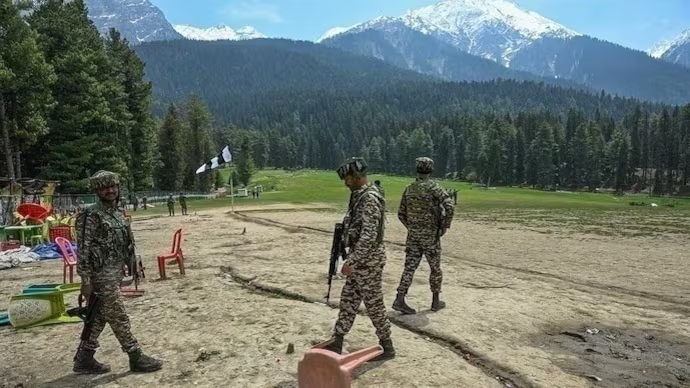– Mohd. Naushad Khan
In the aftermath of the ghastly terror attack in Pahalgam, which claimed the lives of at least 26 innocent people, the response from leading Muslim socio-religious organisations has been not only swift and unequivocal but also mature and proactive. At a time when polarisation and propaganda could have easily dominated the narrative, these voices emerged with a unified message: rejection of terrorism, reaffirmation of peace, and advocacy for responsible dialogue between India and Pakistan.
The All India Muslim Personal Law Board, while mourning the loss of lives, strongly condemned the attack as a “heinous act against the principles of Islam and humanity.” In a significant gesture of solidarity, the Board chose to suspend its protest against the contentious Waqf law for three days – a move that reflects a deep sense of empathy and prioritisation of human life over organisational agendas. The message was clear: communal peace and human dignity must transcend all other pursuits.
Jamiat Ulama-i-Hind, under the leadership of Maulana Arshad Madani, minced no words in condemning the attack. Madani described the perpetrators as “beasts, not humans,” emphasising that such acts of terror have no justification in any religion. He also cautioned against giving the incident a communal colour, pointing out that local Kashmiri residents – irrespective of religion – risked their own lives to help the victims. It was, as he rightly noted, “a moment where the spirit of humanity rose above all divides.”
Maulana Mahmood Madani, also from Jamiat, reinforced the same by calling the attack “inhuman and barbaric,” adding that violence of any form is in contradiction with the core teachings of Islam. His words reflected a sobering reminder in these polarised times: Islam stands firmly for peace, justice, and human dignity.
Syed Sadatullah Husaini, President Jamaat-e-Islami Hind, conveyed sorrow and outrage, underlining that “no cause, no grievance, can ever justify such barbarity.” He called for swift justice for the victims and a sober, responsible approach from all stakeholders – governments, media, and civil society. Importantly, Husaini also stressed the need for both India and Pakistan to use this tragic moment to reaffirm their commitment to peace and non-violence.
What stands out in the collective response of these organisations is not just their condemnation of the attack, but their visionary approach toward preventing such tragedies in the future. The AIMPLB, while strongly denouncing the violence, highlighted the urgent need for diplomatic engagement between India and Pakistan. The Board rightly pointed out that two nuclear-armed nations cannot afford to let violence and militarism dictate their relations. War, it stated, is neither a solution nor a strategy for sustainable peace.
In a welcomed development, JIH extended its support to the ceasefire agreement between India and Pakistan. Husaini termed it “a timely and much-needed gesture towards peace and stability in the region.” He called upon both governments to seize this opportunity, build mutual trust, and work collaboratively towards eradicating terrorism while ensuring justice for victims and security for all.
Organisations like All India Muslim Majlis-e-Mushawarat, Aaghaz-e-Dosti, and Payam-e-Insaniyat have long been working at the grassroots to counter hate and build bridges of understanding. AIMMM, with its rich legacy since 1964, has been at the forefront of advocating peaceful Indo-Pak relations, engaging in policy discourse and community outreach.
Aaghaz-e-Dosti, a youth-driven movement founded in 2012, has pioneered efforts such as peace calendars, cultural exchanges, and pen-pal programmes between Indian and Pakistani students. Their work highlights that peace is not just a political imperative, but a human and generational necessity.
Payam-e-Insaniyat, initiated by Maulana Abul Hasan Ali Nadwi, has consistently reminded us that humanity must be the core of all our interactions. Its focus on interfaith dialogue and social harmony resonates even more in the wake of such tragedies, offering a powerful counter to narratives of hate.
The response of Muslim organisations and civil society groups in India to the Pahalgam tragedy reveals a moral clarity and principled stance that is both inspiring and necessary. In rejecting violence unequivocally, emphasising justice, and calling for peace, they have risen above the fray of reactionary politics.
In times when the public discourse can easily fall prey to divisiveness, these organisations serve as anchors of sanity, empathy, and hope. Their mature handling of the crisis and emphasis on Indo-Pak dialogue underscore the vital role that faith-based and civil society institutions must play in shaping a peaceful and just South Asia.




